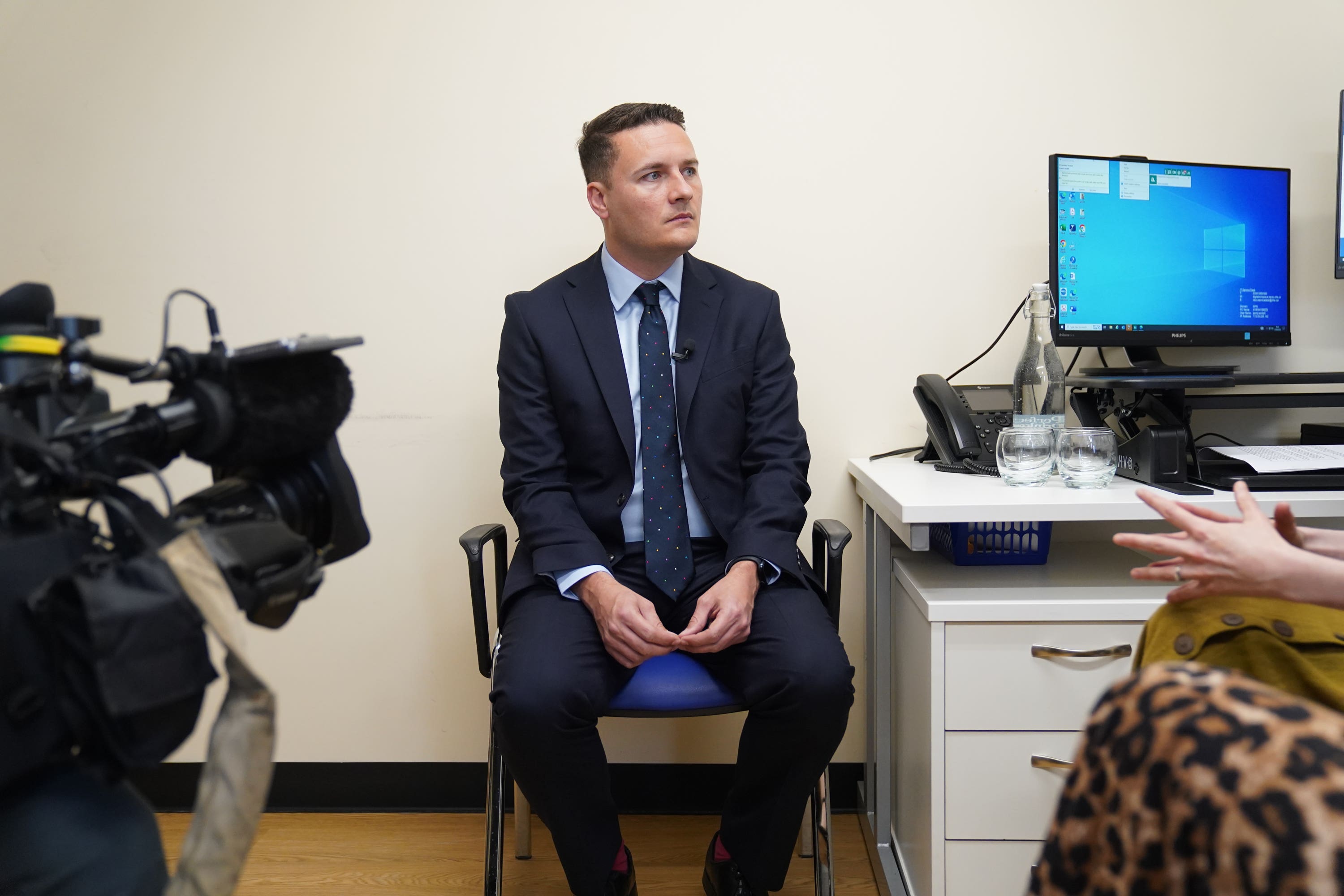Streeting warns health watchdog not fit for purpose after damning report
The health secretary said he was “stunned by the extent of the failings” revealed in the report

Your support helps us to tell the story
From reproductive rights to climate change to Big Tech, The Independent is on the ground when the story is developing. Whether it's investigating the financials of Elon Musk's pro-Trump PAC or producing our latest documentary, 'The A Word', which shines a light on the American women fighting for reproductive rights, we know how important it is to parse out the facts from the messaging.
At such a critical moment in US history, we need reporters on the ground. Your donation allows us to keep sending journalists to speak to both sides of the story.
The Independent is trusted by Americans across the entire political spectrum. And unlike many other quality news outlets, we choose not to lock Americans out of our reporting and analysis with paywalls. We believe quality journalism should be available to everyone, paid for by those who can afford it.
Your support makes all the difference.England’s health and social care watchdog is “not fit for purpose”, health secretary Wes Streeting has warned, pledging immediate action to restore public confidence.
This came after an independent review into the Care Quality Commission (CQC) pointed to “significant internal failings” affecting its ability to identify poor performance at hospitals, care homes and GP practices.
The CQC monitors and inspects all health and adult social care providers to ensure safety and quality standards.

Mr Streeting said he was “stunned by the extent of the failings” revealed in the report.
He said the organisation must put in place a new chief executive and chief inspector of hospitals to oversee “radical” reform, adding: “Leadership is vital”.
Ian Trenholm, who served as the CQC’s chief executive for six years, stepped down in June, just one month before the interim report was published. Kate Terroni, who was formerly his deputy, has been appointed interim chief until a permanent appointment is found.
In the wake of the report, the Department of Health and Social Care announced immediate steps to restore public confidence in the CQC, which is appointing Professor Sir Mike Richards, a former hospital physician and its first chief inspector of hospitals, to review its assessment framework.
Transparency regarding how the regulator determines ratings for health and social care providers will also be improved and the government will have increased oversight of the watchdog, the department said.
Speaking to BBC Breakfast on Friday, the health secretary said the CQC and the government must be “honest about the challenge” facing the regulator.
He said: “Honesty is the best policy that’s why I’ve moved quickly to publish the interim findings.
“These are ratings that people will be looking at today which I can’t have confidence in, I don’t think the public can have confidence in and I’ve asked the CQC urgently to put in place transparency around those ratings so that people can see how those ratings were put together and then make a judgment about whether it’s a true and fair and accurate reflection of the quality of care.”
“Leadership is vital. We need a new permanent chief executive at the CQC and a new chief inspector of hospitals that we can work with to turn the regulator around.
“We will give them every bit of support they need to give the radical reform that the organisation requires.”
The review, led by Dr Penny Dash, chairwoman of the North West London Integrated Care Board, found some organisations had not been reinspected for several years, with the oldest rating for an NHS hospital dating from more than 10 years ago while the oldest for a social care provider was from 2015.
We cannot wait to act on these findings, so I have ordered the publication of this interim report so action can begin immediately to improve regulation and ensure transparency for patients
Of the locations the CQC has the power to inspect, it is estimated about one in five have never received a rating, the interim report found.
It also revealed a lack of experience among some staff including examples of inspectors visiting hospitals and saying they had never been in a hospital before as well as an inspector of a care home who had never met a person with dementia.
The report found inspection numbers were still well below pre-Covid levels, watchdog’s assessments and issues with its IT system.
Reacting to the findings, Mr Streeting said: “When I joined the department, it was already clear that the NHS was broken and the social care system in crisis.
“But I have been stunned by the extent of the failings of the institution that is supposed to identify and act on failings.
“It’s clear to me the CQC is not fit for purpose.
“We cannot wait to act on these findings, so I have ordered the publication of this interim report so action can begin immediately to improve regulation and ensure transparency for patients.
“I know this will be a worrying development for patients and families who rely on CQC assessments when making choices about their care.
“I want to reassure them that I am determined to grip this crisis and give people the confidence that the care they’re receiving has been assessed.
“This Government will never turn a blind eye to failure.”
Care England stands ready to work with the regulator to help them deliver an effective and supportive regulatory system that will be the cornerstone of public protection
Dr Dash was asked to carry out the review of the CQC in May and has spoken to around 200 senior managers, caregivers and clinicians working across the sector, along with more than 50 senior managers and professional advisers at the body over the last two months.
She said: “The contents of my interim report underscore the urgent need for comprehensive reform within the CQC.
“By addressing these failings together, we can enhance the regulator’s ability to inspect and rate the safety and quality of health and social care services across England.
“Our ultimate goal is to build a robust, effective regulator that can support a sustainable and high-performing NHS and social care system which the general public deserves.”
Professor Martin Green, chief executive of Care England, said: “This is going to be a long and difficult journey for the CQC, but one that is entirely necessary.
“Care England stands ready to work with the regulator to help them deliver an effective and supportive regulatory system that will be the cornerstone of public protection and delivers fair judgments across health and social care.

“The CQC must embark on a radical improvement programme that should not only include some tangible improvements in their performance, but also needs to move away from a culture of blame.
“We all want proportionate and effective regulation, and the challenge now is for CQC to take action and work with organisations across the sector to deliver it.”
Kate Terroni, CQC’s interim chief executive, said: “We accept in full the findings and recommendations in this interim review, which identifies clear areas where improvement is urgently needed.
“Many of these align with areas we have prioritised as part of our work to restore trust with the public and providers by listening better, working together more collaboratively and being honest about what we’ve got wrong.
“We are working at pace and in consultation with our stakeholders to rebuild that trust and become the strong, credible, and effective regulator of health and care services that the public and providers need and deserve.”
Progress will be monitored over the summer and the full independent report will be published in autumn, the Department of Health said.